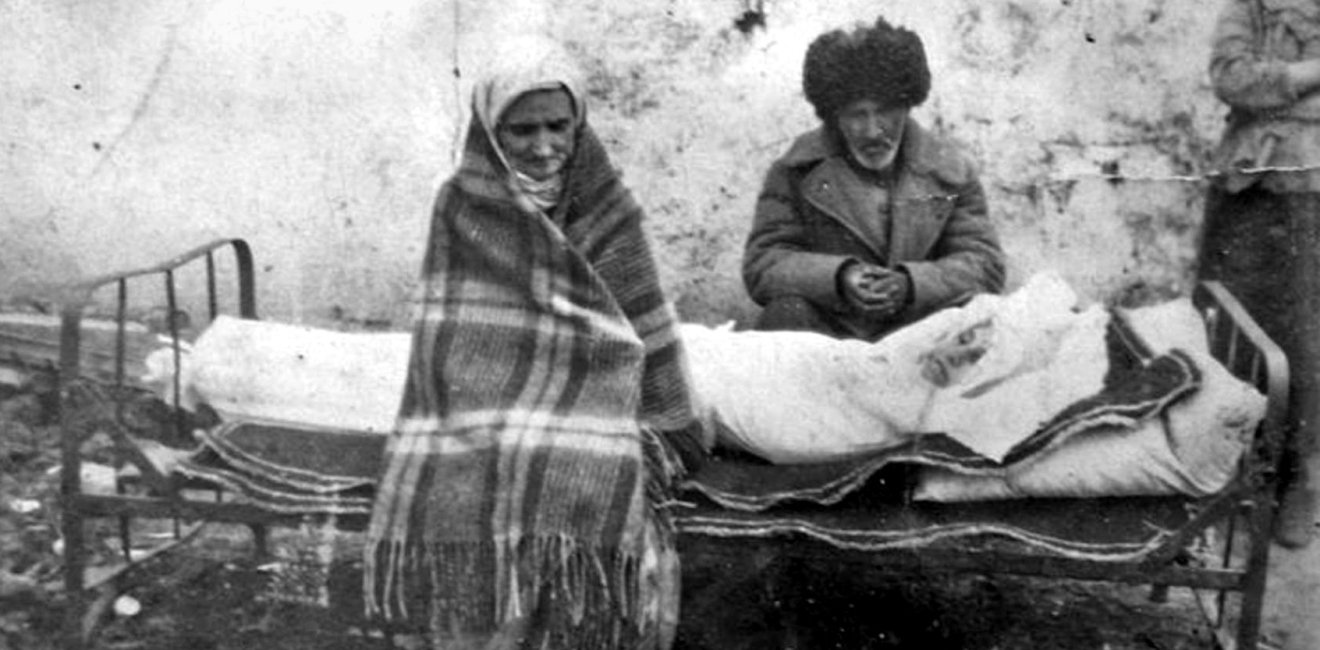
A blog of the Kennan Institute
Among the many voices that have condemned Russia’s war against Ukraine are activist representatives of various non-Russian peoples of the Russian Federation, particularly those who, as a result of persecution, were forced to leave their country. For them, the debate is not exhausted by the war itself. It is informed by a developing anticolonial agenda that pushes back against the efforts of the state to abolish memory and institute a revisionist history that buries their lived experience under a cloud of untruths.
Some ethnic activists call for the dissolution of the empire, for a recognition of their people’s genocide, and for recognizing their lands as occupied by Russia. Expressing such opinions angers not just the Kremlin but also some in opposition circles.
Yet this anti-colonial momentum has been building up over decades of political, linguistic, and cultural discrimination and, most notably, a ban on memory. This can be illustrated using the Ingush example, which holds personal significance for the author.
Stalinist Era Deportations
Eighty years ago, on February 23, 1944, the deportation of Ingush and Chechens to Central Asia began, organized by the top Soviet cadres under the leadership of Joseph Stalin. The grandparents of today’s Ingush survived the harsh conditions of the Central Asian steppes and returned to their native Caucasus, providing their children with the opportunity to grow up and their grandchildren to be born among their native mountains, thus preserving their culture and language.
Modern Ingush, even those born after the collapse of the USSR in 1991, say: “We were deported.” If you ask a descendant of any of the peoples deported during the Soviet era—Chechens, Balkars, Karachais, Crimean Tatars, others—their perception of this tragedy will be equally personal. For the Ingush, deportation is not only the story of grandparents who were left without a homeland. It is also a part of their family and teip (tribal) memory and a significant aspect of their identity. Though younger Ingush were not themselves physically deported, they carry this burden emotionally and culturally.
Such wounds inflicted on entire nations are difficult to heal and remain liable to reopening.
Coping Strategies
The experiences of the twentieth century, especially its horrific wars and revolutions, significantly raised awareness of the need to safeguard the rights of minorities and to avoid discrimination and the incitement of hatred based on any group affiliation.
The older generations of Ingush, who had endured wars and deportations, understood this need as a result of their own harrowing experiences, paid for in the lives of loved ones. They grasped its reality but chose to use their understanding differently. Two strategies predominated in transmitting their encounter with history.
One strategy was not to speak of life in exile. I repeatedly asked my maternal grandfather, who had been deported and then returned, to recount the difficulties he had endured. Despite being only eight years old at the time of deportation, he had vivid memories. However, he routinely avoided answering questions about his life in Central Asia.
Only once, when his now adult granddaughter’s inquiries became too persistent: he fixed his gaze elsewhere and, gripping the bench beam on which he sat, uttered, with tears in his eyes: “May the Almighty protect the peoples from the torment that we experienced!” This was the first and only occasion I witnessed my grandfather, a stern and stout man, shed tears.
Other older people who had also undergone dislocation adopted a different strategy, seeking to share as much information as possible with their children and grandchildren. They deemed it crucial to somehow convey some part of their own experiences. They seemed to be looking for validation that what they had been put through was starkly unjust.
An example comes from my great aunt, the sister of my paternal grandfather, the sole surviving member of that generation of the family. She had been born after the arrest and 1938 execution of my great-grandfather on suspicion of involvement in the Bukharin-Zinoviev conspiracy. She was just five years old when she found herself in a cattle car bound for the Kazakh steppes.
Life in Central Asia was fraught with hardships. Her mother passed away shortly after their arrival, followed later by two brothers and a sister. The surviving siblings were placed under the guardianship of their maternal grandmother, who had already endured the loss of two daughters and three sons.
When the grandmother died, the children were forced to bury her on their own. Their older brother, himself still a teenager, assumed responsibility for raising the younger siblings.
As an adult, my great aunt faced further trauma when she and her daughter had to flee the South Ossetians in 1992, abandoning her apartment in Vladikavkaz, a place she could never return to.
The pain and trauma of such harrowing experiences cannot be unforgotten. It shapes worldviews and forms an integral part of identity, demanding recognition and a formal rehabilitation process.
Yet the Russian state refuses to acknowledge the injustices and crimes committed against entire nations. No perpetrators have been brought to justice, and no meaningful rehabilitation efforts have been undertaken.
February 23, which is celebrated throughout Russia as Defender of the Fatherland Day, is marked in black on the calendars of the Ingush and Chechens. Yet not a single federal-level politician ever mentions in patriotic speeches that for these two peoples, it is a time of mourning. Regional authorities, fearing reprimand from the Kremlin, attempt to reconcile the irreconcilable on February 23, organizing both patriotic events with an eye on the state and mourning commemorations for local people.
Rewriting History, Denying Memory
With the recent revival of praise for Stalin’s policies and the closure of memory institutes and archives, the Russian state has brought its considerable weight to bear in presenting a revisionist history as official. New history books for the tenth grade now assert that the Soviet government decided to deport various ethnic groups, including the Ingush, Balkars, Karachais, Kalmyks, Chechens, and Crimean Tatars, because of their collaboration with Nazi Germany.
Following criticism from regional authorities, particularly Ramzan Kadyrov, head of the Chechen Republic, this paragraph was amended to acknowledge that “the deportation of these peoples was a tragic chapter, and they were indiscriminately accused of treason.” However, it is expected that these edited textbooks will be used in classrooms only in certain regions of the North Caucasus, while students in other parts of Russia will continue to be fed narratives emphasizing betrayal and the necessity of deporting these peoples.
But the damage has been done: in the face of efforts by deported peoples to have their deportations recognized as genocide, even some well-educated Russians express the opinion that Stalin could not have deported entire populations without good reason.
Being Disbelieved Tears at Hope
All of this only compounds the pain of indigenous and small-numbered peoples of Russia. Until a political system exists in which all peoples of Russia can feel secure politically, physically, culturally, and religiously, these minority peoples will continue to fear a recurrence of deportation and displacement.
February 24 marks the two-year anniversary of Russia’s full-scale invasion of Ukraine. This war and other recent and enlarging conflicts across the globe serve as stark reminders that society has not made much headway in overcoming the grim legacy of twentieth-century history. The dream of changing the discourse around the deportation of peoples within Russia and eliminating group discrimination in the future threatens to remain unrealized.
The opinions expressed in this article are those solely of the author and do not reflect the views of the Kennan Institute
Author

Democracy Fellow, Center for European Policy Analysis

Kennan Institute
After more than 50 years as a vital part of the Wilson Center legacy, the Kennan Institute has become an independent think tank. You can find the current website for the Kennan Institute at kennaninstitute.org. Please look for future announcements about partnership activities between the Wilson Center and the Kennan Institute at Wilson Center Press Room. The Wilson Center is proud of its historic connection to the Kennan Institute and looks forward to supporting its activities as an independent center of knowledge. The Kennan Institute is committed to improving American understanding of Russia, Ukraine, Central Asia, the South Caucasus, and the surrounding region through research and exchange. Read more

Explore More in The Russia File
Browse The Russia File
Chechnya as a Model of Modern Russia

Russia’s Indigenous Communities and the War in Ukraine

Gas and Power in a Changing US–Russia Relationship

